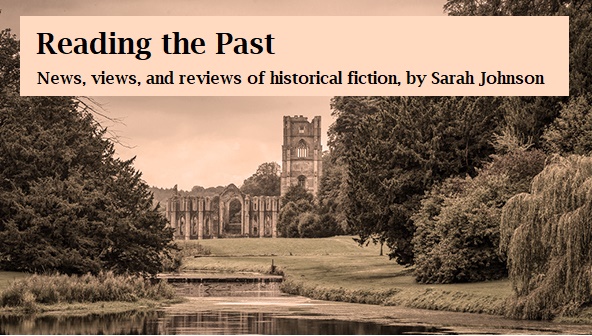The statement has a double meaning the speaker didn't intend but which the reader will come to understand. Back in 1915, countless young Armenians, along with their families, had been forced out of their villages in the Ottoman Empire and into the Syrian desert. Only vestiges of their historical presence remain today in their homeland.
Thus begins a novel that works as an entertaining story and a learning experience – for the reader and, in different ways, for its two protagonists. Orhan comes face to face with his country’s shameful, unacknowledged past after learning that his grandfather had left him his rug business, skipping over his irritated father, but willed their family’s ancestral house to an Armenian woman, Seda Melkonian, living in a California nursing home.
Aline Ohanesian has made several wise decisions in structuring her debut novel, which is set partly in 1990, partly a century ago. Rather than jumping back and forth frequently between the two eras and several viewpoints, which could have felt abrupt and dizzying, she gives all of her narratives sufficient time to build and take hold.
Also, from Orhan and Kemal to Orhan’s Auntie Fatma, whose tart and feisty attitude spices things up, to the elderly Seda, who feels weighted down by a personal history she can’t escape, her characters are as well-developed as her plots. It's an emotional page-turner of a book, and while it doesn’t shy away from the horrors the Armenians suffered at Turkish hands, it also doesn’t malign an entire people.
And finally, with her intimate focus on one family’s tragic losses, she conveys the enormity of the devastation wrought upon their ethnic group. The Melkonians’ story is both unique and universal.
Those who enjoy piecing together mysteries will find much to appreciate in Orhan’s Inheritance, since no single individual has all the information to resolve a historical puzzle. For prospective readers, the less said about the plot’s specifics here, the better.
Basing her moving work on her great-grandmother’s early life, Ohanesian shows how the past must be acknowledged, and ignorance abolished, in order to move forward. As the centennial of the Armenian Genocide is observed this month, with widespread commemorations and continued urgings for more official recognition, there should be no question that this work of historical fiction – and history itself – has incredible relevance for today.
Orhan's Inheritance was published this month by Algonquin Books of Chapel Hill (hb, $25.95, 352pp). Thanks to the publisher for the copy that showed up in my mailbox.











This sounds wonderful. Thanks for highlighting it.
ReplyDeleteIt must have been tough to write a story on a painful subject that's also an absorbing read, but this one is both. I definitely recommend it.
DeleteI'm adding this to my wish list. I've read one other HF novel re. the Armenian genocide, but wish I had a better understanding of this event.
ReplyDeleteOne of my friends growing up was Armenian, and there were many students of Armenian descent at my high school, but I didn't understand why she and her family celebrated and protected their heritage so much until I learned more about the Armenian genocide through reading. This novel gives useful background to events, not only what happened but also the politics behind it all.
DeleteMy brain kept coming back to this yesterday. In the mid-90s, well into my 30s, I stumbled over a dusty book in my seminary library. I turned out to be a survivor's memoir of being marched out into the desert at gunpoint and left to die along with endless 1000s of others. The story was horrifying but almost as bad was realising I had never heard of these events. How could this have happened and yet we'd never learned about it in school? Call it genocide or not, 1.5 million people had been killed and no one had mentioned it.
ReplyDeleteOtherwise, I've known little about those times but found this article today:
http://us.cnn.com/2015/04/24/europe/armenia-turkey-massacre/index.html
It was never mentioned in any of my history classes, either. Although we did learn about WWI. It must have been so frustrating and demoralizing for the Armenian Americans there.
DeleteThanks for posting the link. I remember reading about the controversy in Turkey when Orhan Pamuk bravely spoke out.